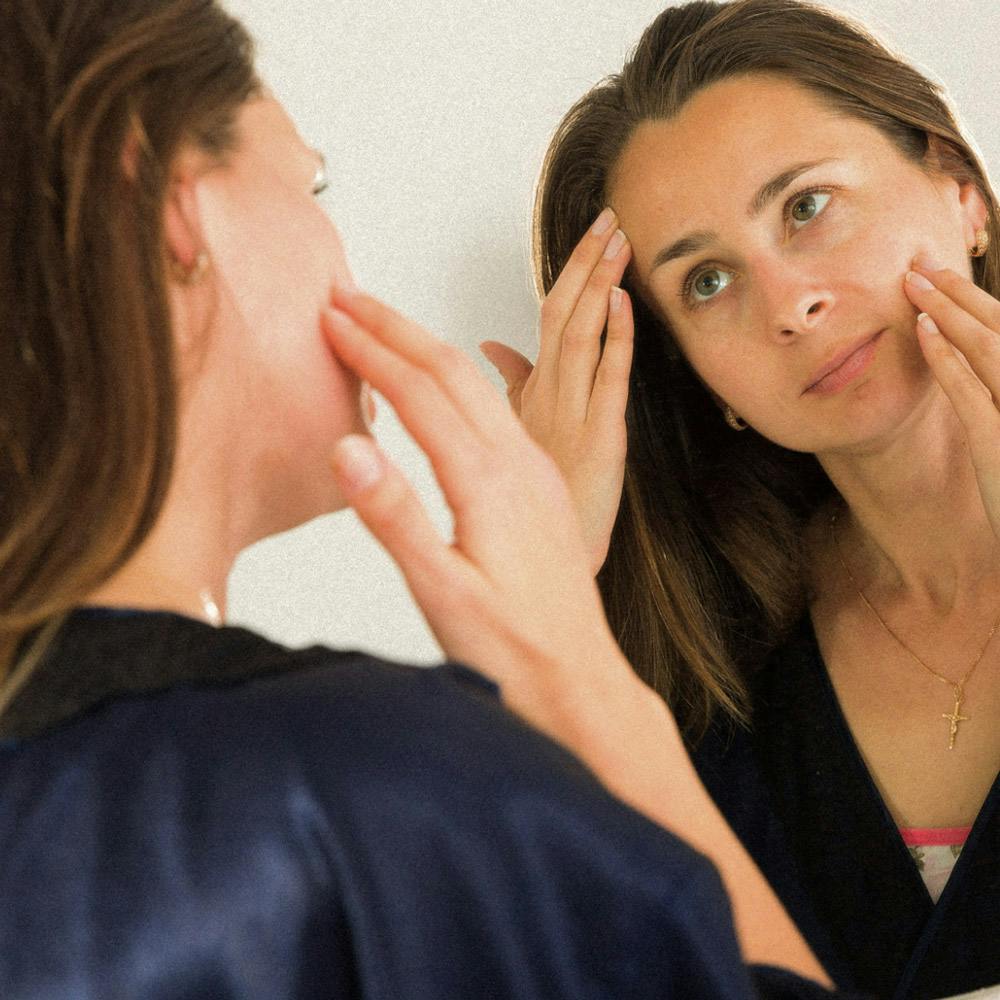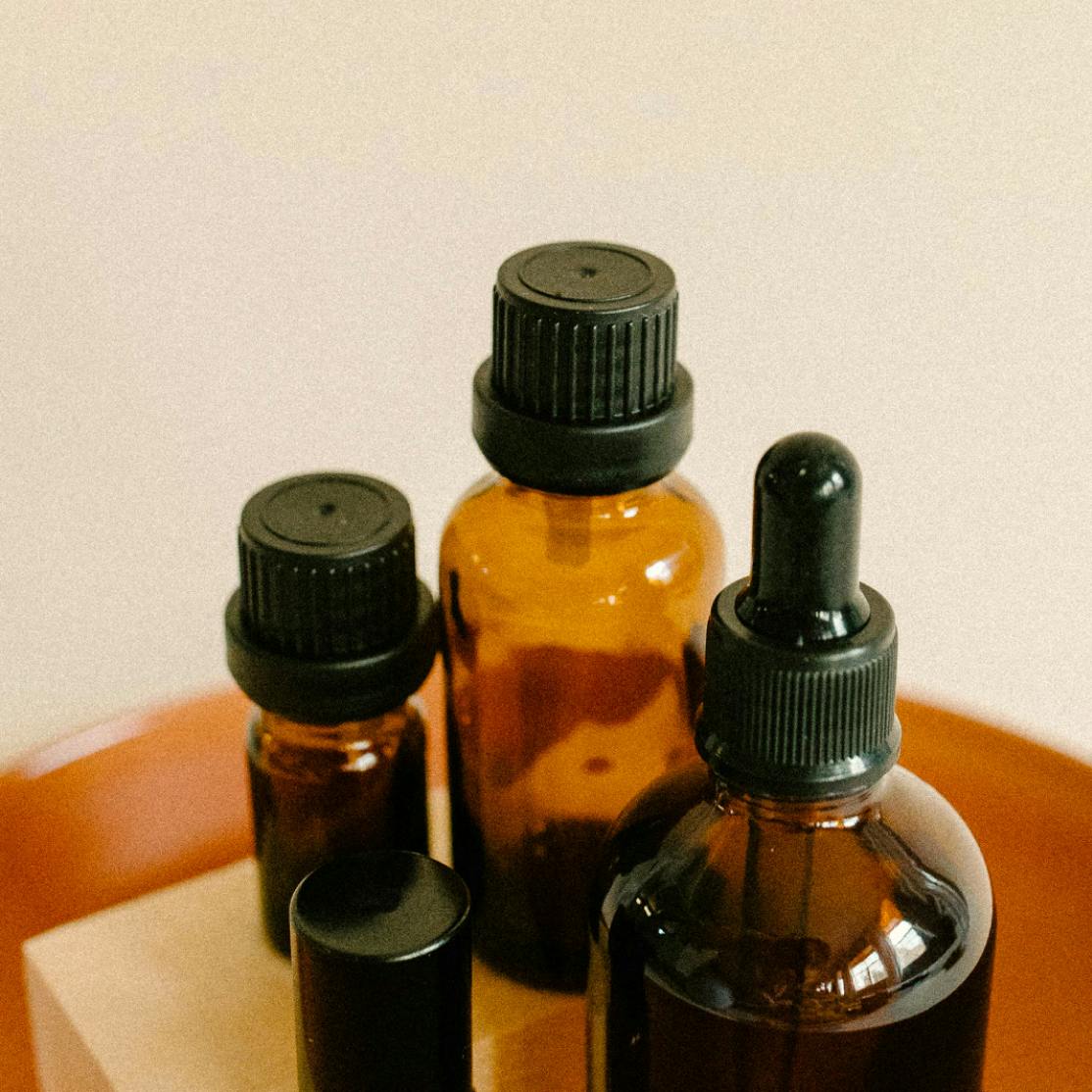High testosterone is something an estimated one in 10 women deal with, and it’s most often a result of polycystic ovary syndrome, or PCOS. Elevated levels of testosterone can cause issues both internally—like insulin resistance and infertility—as well as externally, like excess body hair and acne. There isn’t a single answer to how to treat high testosterone in women, but medications and lifestyle changes can help get testosterone back in an optimal range while improving any complications that arose when levels were too high. Working with a healthcare professional, like a Midi clinician, can help you determine if your levels are high and what to do about it.
Testosterone may have a macho persona—it’s the hormone that’s usually credited with giving men bulging muscles, after all—but it also plays a crucial role in women’s health. It can help with muscle mass, sexual function, and libido, but it also benefits bone density, energy levels, mood, and cognitive function.
As women approach menopause, testosterone (just like estrogen and progesterone) will start to dip. In fact, at around age 30, testosterone levels start gently declining at a rate of about 1% to 2% per year; by the time you hit menopause, levels are approximately half of what they were at their peak. But for some women, testosterone can actually shoot up in the other direction.
Excess testosterone, a condition known as hyperandrogenism, could be a sign of an underlying health condition, most notably polycystic ovarian syndrome (PCOS), and can cause unwanted hair and skin changes:
- Increased hair growth in places more typical to men like on the face.
- Hair loss on the head (similar to male pattern baldness)
- Increased acne
So while you don’t want to deal with too little testosterone, you also don’t want too much of it either. Read on to learn about the causes and symptoms of high testosterone in women, and, most importantly, how to treat it.
What Is High Testosterone in Women?
To know what’s considered high testosterone in women, you have to first understand what’s normal. Total testosterone in women is 10 to 20 times less than you’d find in men, but it is still a major hormone in women: Until menopause, your body makes three times the amount of testosterone as it does estrogen. And up to half of that testosterone is produced by the ovaries and adrenal glands. This is important to note because many causes of high testosterone are due to issues in those two organs.
Normal testosterone levels vary based on age, but for a woman in her 30s, it should be between 15 and 46 ng/dL. The only way to know for sure if you have high levels of testosterone is to get tested. This likely will involve testing two forms of testosterone:
- Testosterone attached to proteins: This is the majority of the testosterone in your body. It’s attached to protein as a way to stop your body from using it right away, a mechanism that helps control how much testosterone is active at any one time.
- Free testosterone: This is any testosterone that’s not attached to a protein and is active in the body.
A total testosterone test will measure both of the above types, while a free testosterone test only measures the kind not attached to proteins.
Just like all the hormones in your body, there are natural fluctuations in testosterone that are nothing to be alarmed by—the hormone goes up and down throughout the day and night (it’s highest in the morning) as well as throughout your menstrual cycle (and no, it doesn’t need to be “balanced”). But if your testosterone is chronically above what’s considered within normal range, you’ll begin to see certain noticeable symptoms.
Symptoms of High Testosterone in Women
Physical Symptoms
You might notice the physical signs of high testosterone first, including:
- Excess hair growth (hirsutism) on your face, chin, and abdomen
- Thinning hair, possibly male-pattern baldness on the front and sides of the head
- Acne or oily skin
- Smaller breasts
- Deeper voice
- Larger clitoris
Reproductive Issues
If you’re premenopausal, there may also be some signs related to your reproductive system:
- Irregular or missed periods
- Infertility, if the high levels of testosterone are caused by PCOS
Emotional Changes
And because testosterone levels are linked to mood, you may experience certain emotional or psychological symptoms:
- Mood swings
- Depression
Causes of High Testosterone in Women
There are a few key issues that can lead to high testosterone levels in women:
Polycystic Ovary Syndrome, or PCOS

By far, the most common cause of high testosterone in women is polycystic ovary syndrome, or PCOS, which is a hormonal disorder that causes the ovaries to pump out more hormones than necessary. So it should come as no surprise that two-thirds of people with PCOS have high testosterone. And women with PCOS have, on average, twice as much testosterone as people without PCOS. In fact, high levels of testosterone is a key marker of PCOS (along with a lack of ovulation and ovarian cysts). Many of the symptoms of high testosterone, like acne and body hair, are also signs of PCOS.
Is It PCOS or Perimenopause?
Many symptoms of PCOS line up with symptoms of perimenopause, like irregular or missed periods, mood changes, weight gain, and difficulty sleeping. But PCOS-specific symptoms include acne, facial hair growth, and skin darkening. A clinician may order blood tests or a pelvic ultrasound to check for PCOS.

Other Endocrine Disorders
There are other endocrine disorders that may also cause testosterone levels to get high, including congenital adrenal hyperplasia. This genetic disorder affects the adrenal glands and can cause women to have atypical female genitalia and they usually have high levels of testosterone as a result.
Metabolic Syndrome
Beyond the above health conditions, other factors can also cause high testosterone in women, including having metabolic syndrome, which is a combination of certain health issues, including:
- Obesity
- High cholesterol
- High blood pressure
- High glucose levels
- Insulin resistance
Certain Medications
Certain medications can also cause high testosterone in women. For example, if your partner is using a topical testosterone therapy, it can make your own levels rise. Antiepileptics could also raise levels as will using anabolic steroids.
In most cases, if you or a healthcare professional suspect high testosterone is behind your symptoms,` testing to confirm. Getting the proper diagnosis can set you on the right path to finding relief. At Midi, our clinicians can recommend lab tests and make referrals to specialists if necessary.
10 Ways to Lower Testosterone
Once you diagnose the underlying cause of your high testosterone levels, you can start on the path to relief. A treatment plan may include medication as well as natural ways to lower testosterone through dietary changes and lifestyle adjustments. For some women, losing weight—especially by reducing caloric intake—can help bring testosterone down and also improve symptoms like unwanted hair growth.
Addressing Underlying Causes
The best way to treat high testosterone is to treat what’s actually causing the elevated hormones in the first place. We’ll cover other natural ways to lower testosterone below, but we can’t underscore enough how proper diagnosis is key.
For many women that means treating PCOS. The first step is getting an accurate diagnosis, which isn’t straightforward and is part of why up to 70% of women with PCOS remain undiagnosed. PCOS isn’t diagnosed with a single test, it requires a detailed physical exam, hormone tests, a review of your medical history, and possibly an ultrasound. Your treatment plan should be personalized to your unique symptoms and needs, but may include hormone therapy, like birth control or anti-androgen medicine, and medications that improve insulin sensitivity.
If your high testosterone is not caused by PCOS, but is instead due to an adrenal disorder like congenital adrenal hyperplasia, your doctor will have a different treatment plan, including medications and possibly surgery.
Dietary Changes
- Avoid high-sugar and processed foods: Insulin resistance is linked to high testosterone levels in women, so eating foods that can help improve insulin sensitivity is a good step. That means eating less saturated fat from animal sources and refined carbohydrates, like sugary packaged foods.
- Prioritize foods with a low glycemic index: The lower the glycemic index of a food, the more stable your blood sugar levels stay, and the less insulin your body will need to produce to process it. Why is this important? Because the production of insulin is linked to the production of testosterone. Make less of one and your body will make less of the other. Low-glyemic index foods include most fruits and vegetables, legumes, some grains, and low-fat dairy foods.
Lifestyle Adjustments
- Exercise regularly, including strength training: Not only will staying active help you lose weight, which can lower testosterone, but resistance training has also been shown to bring levels down. Research has also shown that a regular yoga practice can help improve hormone levels, including lowering testosterone, in women with PCOS.
- Reduce stress: Higher levels of stress are linked to higher levels of testosterone, possibly due to a link between cortisol (the stress hormone) and testosterone. Everyone’s approach to stress relief is unique. Focus on what works for you, whether that’s meditation, journaling, or other mindfulness practices.
Rx Treatments for High Testosterone
In addition to naturally reducing levels of testosterone, there are certain medications and procedures that are proven to help improve hormone levels and the effects of too much testosterone. These include:
- Birth control pills: Oral contraceptives can help regulate your hormones and may also improve symptoms like acne and excess body hair. They mainly work by decreasing the amount of testosterone produced by your ovaries and by increasing the production of the sex hormone-binding globulin, which binds testosterone and reduces the amount of free (or active) testosterone available.
- Anti-androgens: These medications, which include spironolactone and finasteride, block testosterone’s effects on the body (they stop the testosterone from binding to receptors, making it harmless). This can also improve things like hirsutism and acne. Keep in mind you can’t use these if pregnant or trying to get pregnant.
- Laser hair removal or electrolysis: This can help you manage excess body and facial hair, even though it won’t treat the underlying cause of your high testosterone. Keep in mind that it can take six to eight treatments to see changes.
- Fertility treatments for women struggling to conceive: If your high testosterone is making it difficult to get pregnant, as can happen if it’s caused by PCOS, medications like letrozole can help induce ovulation and improve pregnancy rates.
True Stories of Transformation
The Role of Supplements in Hormonal Health
While supplements aren’t typically part of the main treatment plan for high testosterone, you may find they help support your efforts. Some supplements to consider and discuss with a healthcare professional:
- Spearmint and licorice root: Small studies show that spearmint tea and licorice may be able to help reduce testosterone levels modestly.
- Inositol: This supplement, specifically for those with PCOS, can also help bring down testosterone by improving insulin sensitivity.
Make sure you talk with your healthcare provider before taking any supplements. They may interact with medications you’re taking or be harmful, so your doctor is the best person to consult so they can take into account your full health profile.
Supplements are also not regulated by the FDA, so you need to take certain precautions. Make sure you get your supplements from a reputable supplier and that they are third-party verified, meaning an outside organization has confirmed that the products contain what they claim.
Psychological and Emotional Impacts of High Testosterone
Having high testosterone is not just a physical condition, it can also carry quite an emotional toll. It’s natural to feel more self conscious, especially with certain male-centric symptoms like body hair and baldness. This is one reason it’s so important to get on a good treatment plan, which can help improve those physical symptoms and, as a result, improve mood and quality of life.
Also make sure you don’t ignore the anxiety and depression that can be so common with high testosterone. Therapy as well as support groups can help you work through the emotions and feel less alone. And you aren’t alone: Up to one in 10 women in the United States have high testosterone levels. And feeling the support of others going through the same health journey as you can make all the difference.
When to See a Doctor for High Testosterone
Not everyone with high testosterone needs extensive medical care. This may be true if the levels are only slightly elevated, especially if there are no symptoms and the condition doesn’t cause infertility or other issues. But even if you feel fine, make sure to get tested for related complications, such as insulin resistance or, in rare cases, ovarian tumors. And if you are hoping to get pregnant and are experiencing irregular menstrual cycles or infertility, find out what options are available to you sooner rather than later.
If you find that the symptoms of high testosterone are persistent or severe, talk with a healthcare professional, like a Midi clinician, about solutions. Remember: You don’t need to suffer through high testosterone—there are things you can do about it. But proper diagnosis is key.
Prevention and Long-Term Management
Having high testosterone levels can be a long-term health issue, which is why it’s important to think of managing your symptoms as a long-term project. Embrace a healthier lifestyle with a balanced diet and regular exercise, find what works for reducing your stress, and keep up with routine doctor visits to keep an eye on your hormone levels.
The Takeaway
- Testosterone plays an important role in women’s health, improving muscle mass, sexual function, libido, bone density, energy levels, mood, and cognitive function.
- Too much testosterone, however, can cause excess body hair, male-pattern baldness, acne, infertility, irregular periods, and mood disorders.
- The main cause of high testosterone in women is polycystic ovary syndrome, or PCOS.
- To lower testosterone levels, you should treat the underlying cause. This may include medications and lifestyle changes like eating a healthy diet and exercising more.
- Make sure you are getting the right treatment for high testosterone by advocating for yourself with your doctor, asking for the right tests, and speaking up if a treatment isn’t working.
Frequently Asked Questions (FAQs)
What can I do if my testosterone is high?
If you have high testosterone, talk with a healthcare professional about the best treatment plan for you. It may involve a combination of medication to reduce your testosterone levels and lifestyle changes like exercise and a healthy diet.
How can I fix my high testosterone naturally?
Certain healthy habits, like exercising regularly, eating a healthy diet, reducing stress, and prioritizing sleep, can help lower testosterone. There are also some supplements that may be able to help, such as spearmint and licorice root.
How can I lower my testosterone level?
One of the ways to lower your testosterone level is to lose weight through exercise and a healthy diet. You can also take certain androgen-reducing medications that will bring your testosterone levels down.
Can high testosterone be reversed?
Yes, you can reduce your testosterone with a combination of lifestyle and medication. Talk with a healthcare professional about the underlying cause of your high testosterone and the solutions that can help.
If you’re in perimenopause or menopause and want guidance from clinicians who specialize in women’s midlife health, book a virtual visit with Midi today.
Hormonal change is at the root of dozens of symptoms women experience in the years before and after their period stops.
Our trained menopause specialists can help you connect the dots to guide you towards safe, effective solutions.
Whether you need personalized guidance or a prescription routine to tackle symptoms—including vaginal dryness and irritation, brain fog, hot flashes, sleep trouble, mood swings, and weight gain—we’ve got you covered.
Midi’s mission is to revolutionize healthcare for women at midlife, wherever they live and whatever their health story. We believe that starts with education, to help all of us understand our always-changing bodies and health needs. Our core values guide everything we do, including standards that ensure the quality and trustworthiness of our content and editorial processes. We’re committed to providing information that is up-to-date, accurate, and relies on evidence-based research and peer-reviewed journals. For more details on our editorial process, see here.
 Alice Oglethorpe
Alice Oglethorpe






